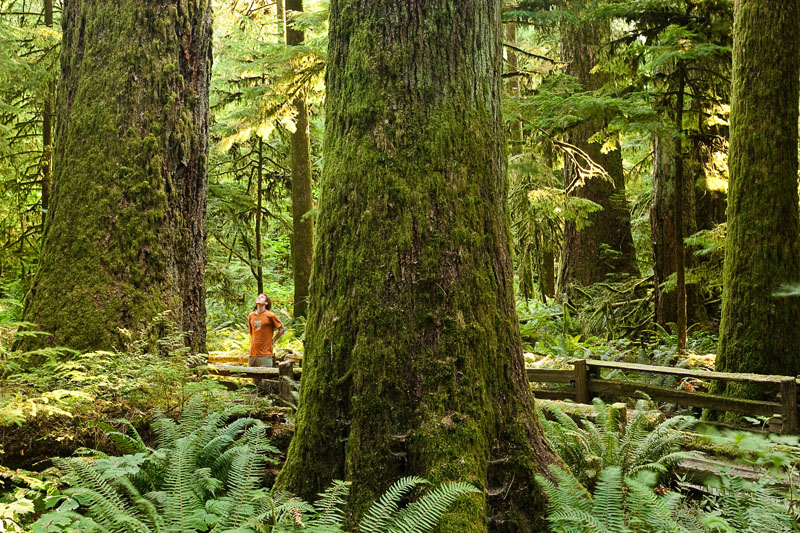
Earth Day Inspires Environmental Actions Around the World
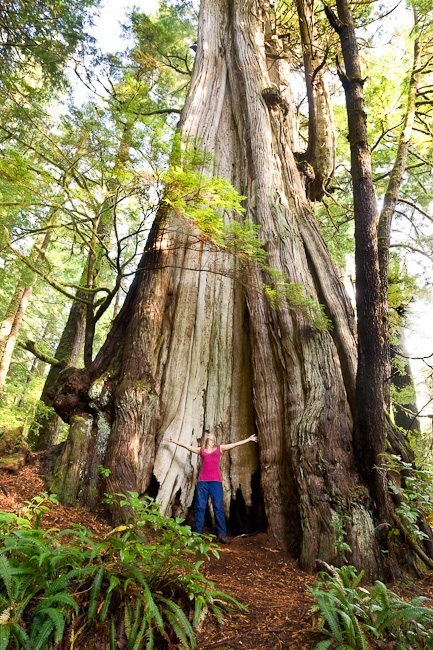
Earth Day: AFA Booths, Events & Fundraisers in VICTORIA & VANCOUVER
Come out to support the Ancient Forest Alliance at these upcoming Earth Day/Week events, booths & fundraisers in Victoria and Vancouver, including the Earth Day Parade & Celebration, Creatively United for the Planet, Cafe 932, North Park Bike Shop, Grassroots Eco Salon's "Haircuts not Clearcuts" fundraiser, and the Granville Island Public Market. SEE HERE for details on all these events. Thanks so much to these organizers and local businesses for your support!
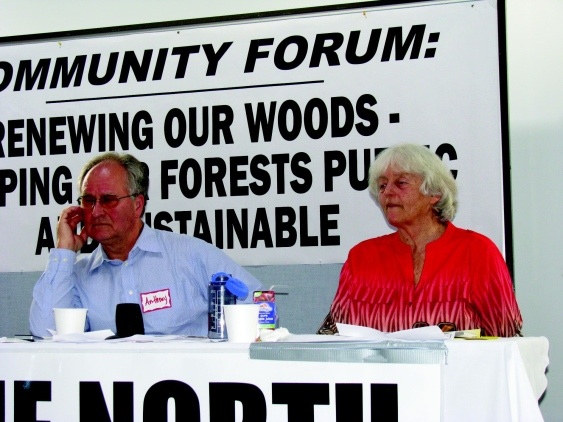
Forum urges residents to Stand Up for forests
Approximately 200 people came out to hear from First Nations, labour leaders, forestry policy analyst Anthony Britneff and noted environmentalist Vicky Husband. Britneff is a former senior forester with the B.C. Ministry of Forests and Range. He retired in 2010 after 40 years with the agency, and has been speaking out about what he calls "a perfect storm of mismanagement." On April 1, Forests, Lands and Natural Resource Operations Minister Steven Thomson announced a public consultation on a proposal to increase area-based tenures and tree farm licences. The consultation runs until May 30. "This process is not a public consultation at all. It's the government asking for feedback on what it plans to do," Britneff said.
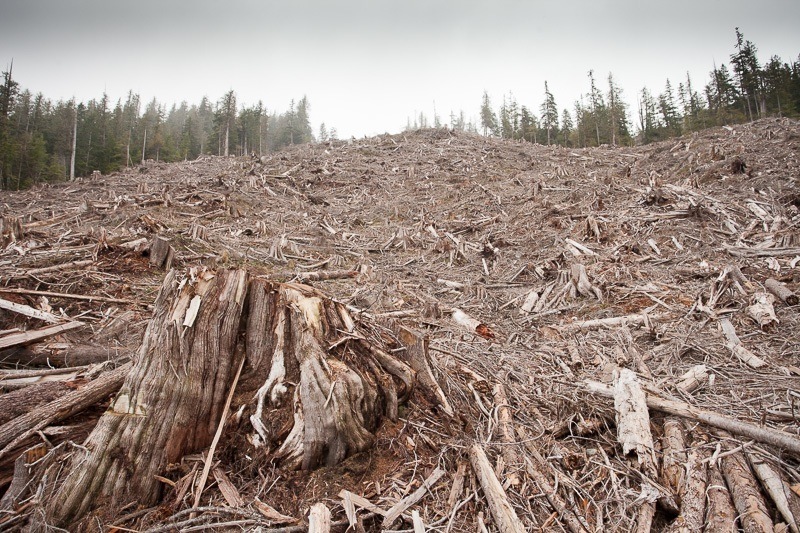
Playing with words regarding Tree Farm Licences
"When you drill down past all the headings and references to Area-based Forest Tenures on the Ministry’s website and in its Discussion Paper, it becomes clear that what the Ministry is proposing is a rollover of volume-based licences into one particular - and highly controversial - type of area-based tenure, i.e. Tree Farm Licences (TFLs).
So, rather than a Discussion Paper on Area-based Forest Tenures, the Discussion Paper could be more accurately described as a Discussion Paper promoting the benefits of Tree Farm Licences and defining the criteria for rollover to these TFLs. Why confound the terms and cause confusion? Why not make it crystal clear, with no ambiguity, that this whole exercise is about TFLs alone? Well, Tree Farm Licences have always been controversial in BC. Just last year, the Minister of Forests tried to push through legislation allowing for large-scale conversion of existing timber licenses into TFLs. Many in the province felt that this move would be a giveaway to the investors and shareholders of a few big companies at the expense of other sectors of the forest industry, First Nations and the population as a whole. In the face of widespread opposition, the Forest Minister was forced to withdraw the legislation."
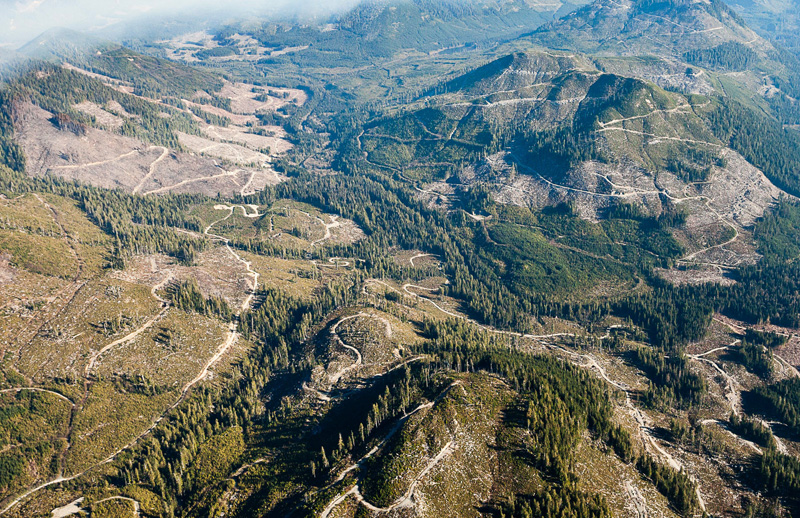
BC Liberal Government Revives Proposed “Forest Giveaway Scheme” for Major Logging Companies on Public Forest Lands
Revived proposal would entrench the status quo of unsustainable overcutting by granting exclusive logging rights to major timber companies over vast areas of public forest lands by expanding Tree Farm Licences.
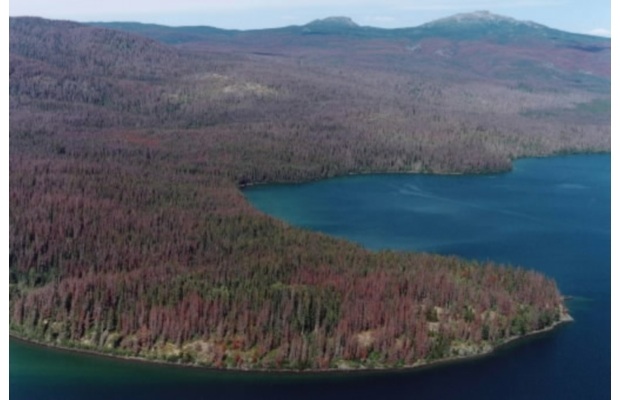
B.C. announces plans to revamp its timber supply system for forestry firms
Forests Minister Steve Thomson says the Liberal government is taking another shot at giving forest companies more rights to control British Columbia's public forest lands, but he rejects criticism that the plan would privatize provincial forests. The move could dramatically change the way public forests are managed by granting lumber companies tenure rights, or logging rights, to large pieces of land. Companies are currently allotted timber harvest rights on a specified numbers of trees. Plans to amend the Forest Act last year to move towards area-based tenures were dumped after a public outcry.

B.C. government reopens timber rights talks
Critics argue that giving forest companies increased control over Crown land spells disaster for the environment and makes it more difficult to settle First Nations treaties. “When companies say they want greater certainty over the land base, what they mean is greater certainty against conservation measures and treaty settlement,” said Ken Wu, executive director of the Ancient Forest Alliance. “There’s a lot of other users and a lot of other values on those lands besides large-scale logging.” NDP forests critic Norm Macdonald said there is no evidence that allowing exclusive rights in a timber area benefits anyone other than the big forest companies, many of whom are major donors to the B.C. Liberal Party.
Take Action
 Donate
Donate
Support the Ancient Forest Alliance with a one-time or monthly donation. Send a Message
Send a Message
Send an instant message to key provincial decision-makers.Get in Touch
Earth-Friendly Web Design by Fairwind Creative
- Home
- About Us
- Our Work
- Ancient Forests
- Recent News
- Photos & Media
- Map of Gallery Regions
- Themes
- Videos
- Inland Rainforest
- Mainland
- Haida Gwaii
- Sunshine Coast
- Sunshine Coast: Powell River
- Vancouver Island South
- VI South: Caycuse Watershed
- VI South: Mossy Maples
- VI South: Port Renfrew
- VI South: Port Alberni
- VI South: Walbran Valley
- Vancouver Island Central
- VI Central: Clayoquot Sound
- VI Central: Cortes Island
- VI Central: Tahsis
- Vancouver Island North
- Take Action
- Store
- Donate
